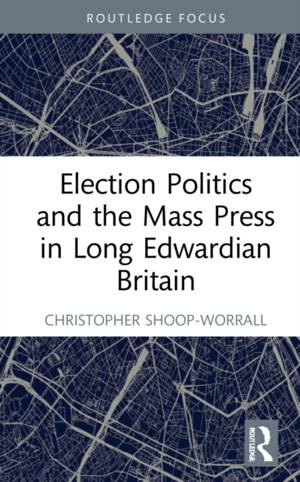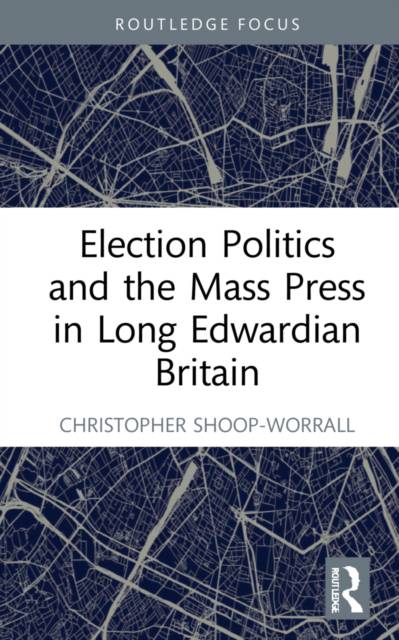
- Retrait gratuit dans votre magasin Club
- 7.000.000 titres dans notre catalogue
- Payer en toute sécurité
- Toujours un magasin près de chez vous
- Retrait gratuit dans votre magasin Club
- 7.000.000 titres dans notre catalogue
- Payer en toute sécurité
- Toujours un magasin près de chez vous
Election Politics and the Mass Press in Long Edwardian Britain
Christopher Shoop-WorrallDescription
This book explores the ways in which the emergence of the 'new' daily mass press of the late-nineteenth and early-twentieth centuries represented a hugely significant period in histories of both the British press and the British political system.
Drawing on a parallel analysis of election-time newspaper content and archived political correspondence, the author argues that the 'new dailies' were a welcome and vibrant addition to the mass political culture that existed in Britain prior to World War 1. Chapters explore the ways in which the three 'new dailies' - Mail, Express, and Mirror - represented political news during the four general elections of the period; how their content intersected with, and became a part of, the mass consumer culture of pre-Great War Britain; and the differing ways political parties reacted to this new press, and what those reactions said about broader political attitudes towards the worth of 'mass' political communication.
This book will be of interest to students and scholars of media history, British popular politics, journalism history, and media studies.
Spécifications
Parties prenantes
- Auteur(s) :
- Editeur:
Contenu
- Nombre de pages :
- 116
- Langue:
- Anglais
- Collection :
Caractéristiques
- EAN:
- 9781032182315
- Date de parution :
- 17-01-22
- Format:
- Livre relié
- Format numérique:
- Genaaid
- Dimensions :
- 140 mm x 216 mm
- Poids :
- 294 g







